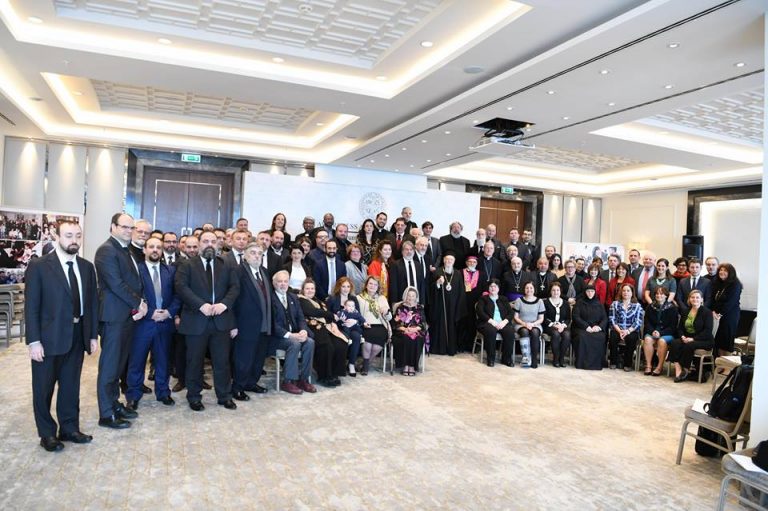
The Third International Forum on Modern Slavery organized by the Ecumenical Patriarchate with the theme “Awareness, Action and Impact” took place in Istanbul, Turkey on 5-8 January 2019. Recognizing that modern slavery is a global scourge that traps millions of people to lives of suffering, injustice and humiliation, His All-Holiness established a Task Force on Modern Slavery as a commitment of the Ecumenical Patriarchate to learn, to act and to witness towards the elimination of the interconnected forms of visible and invisible enslavement affecting over 46 million people worldwide. The first Forum, “Sins Before Our Eyes,” was held in Istanbul, Turkey, in February 2017. The second Forum, “Old Problems in the New World,” was held in Buenos Aires, Argentina, in May 2018.
In an opening address at a Forum on Modern Slavery in Istanbul on 7 January, Ecumenical Patriarch Bartholomew spoke on “Awareness, Action and Impact.”
After many centuries of progress and advancement, we still live in a world where injustice and slavery continue to thrive, and where human dignity is exchanged for the sole purpose of greed, gain, and profit, reflected Bartholomew. “The Ecumenical Patriarchate is committed to learn, act, and witness to the elimination of this global abomination that traps millions of people to lives of suffering, injustice, and humiliation,” he said.
The forum convened experts, practitioners and policymakers from international, governmental and non-governmental organizations, in consultation with representatives from Orthodox Christian ministries of the Ecumenical Patriarchate. It is the third such international gathering. Among the topics discussed were human rights, legal framework, forced migration, human trafficking, and grassroots action.
“Human trafficking is an issue driven by power and privilege…we must challenge the current power systems in our societies,” said Dr Perry N.Halkitis, dean of the Rutgers School of Public Health.
“The declaration of the rights of the child is denied to so many children on the move because of their migration status,” said Dr V.Digidiki Lucero of the Harvard School of Public Health.
“The end of violence requires the end of impunity. The end of impunity requires functioning public systems,” said Abraham George, global director, Church Partnerships, International Justice Mission.
“Until you are in it (the human trafficking reality) you have no idea what life you are saving…the only question is: Not others but what can I do about it?” asked Savelia Curniski, of NASHI, Canada.
Ultimately, silence and passive acceptance of the present situation is no longer possible or acceptable, Bartholomew concluded. “Our love is not to be only for those whom we know, but also for the nameless, the unknown, those who are suffering, especially those trapped in the complex web of slavery,” he said. “We are called to fulfill an act of natural justice, as we must liberate them from tyranny and exploitation.”
Words are not enough, Ecumenical Patriarch Bartholomew reiterated. “Action is required,” he urged. “Together with the sensitization of consciences, we must participate in concrete initiatives and actions.”